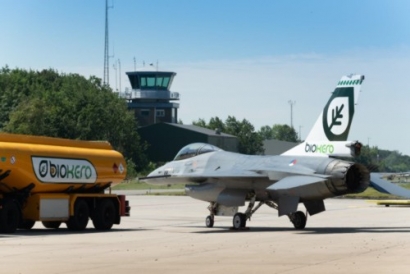
By operating the F-16 Fighting Falcons on SAF, the Royal Netherlands Air Force aims to further reduce its ecological footprint.
Colonel Paul de Witte, Head of Material Logistical Regulation and Development at the Royal Netherlands Air Force, said, “The transition to sustainable aviation is of key importance for the Royal Netherlands Air Force. In 2010 we performed the first demonstration flight with an Apache helicopter on biofuel. We now want to work towards structurally operating all our aircraft on SAF from all our locations. The current flights on SAF from Leeuwarden Airbase are an important step in this.”
The F-16 Fighting Falcons fly on a mix containing 5 percent SAF. The SAF, produced by World Energy from used cooking oil, is supplied by SkyNRG and Shell Aviation at the airbase in Leeuwarden and mixed at the airbase with conventional fuel for the Fighting Falcons. The SAF reduces CO2 emissions by 60 to 80 percent compared to conventional fuel.
The SAF supplied in Leeuwarden is enough for the first half of 2019. In the coming years, the Royal Netherlands Air Force aims to gradually increase the blend percentage and eventually operate all her aircraft on SAF. In 2030, the Air Force wants to reduce dependency on fossil fuels by 20 percent, and in 2050 no less than 70 percent.
Eline Schapers, Head of Sales, Supply & Operations at SkyNRG, said, “We are very happy with the leadership role that the Royal Netherlands Air Force takes in the energy transition and proud to work with them for the supply of sustainable aviation fuel.”

